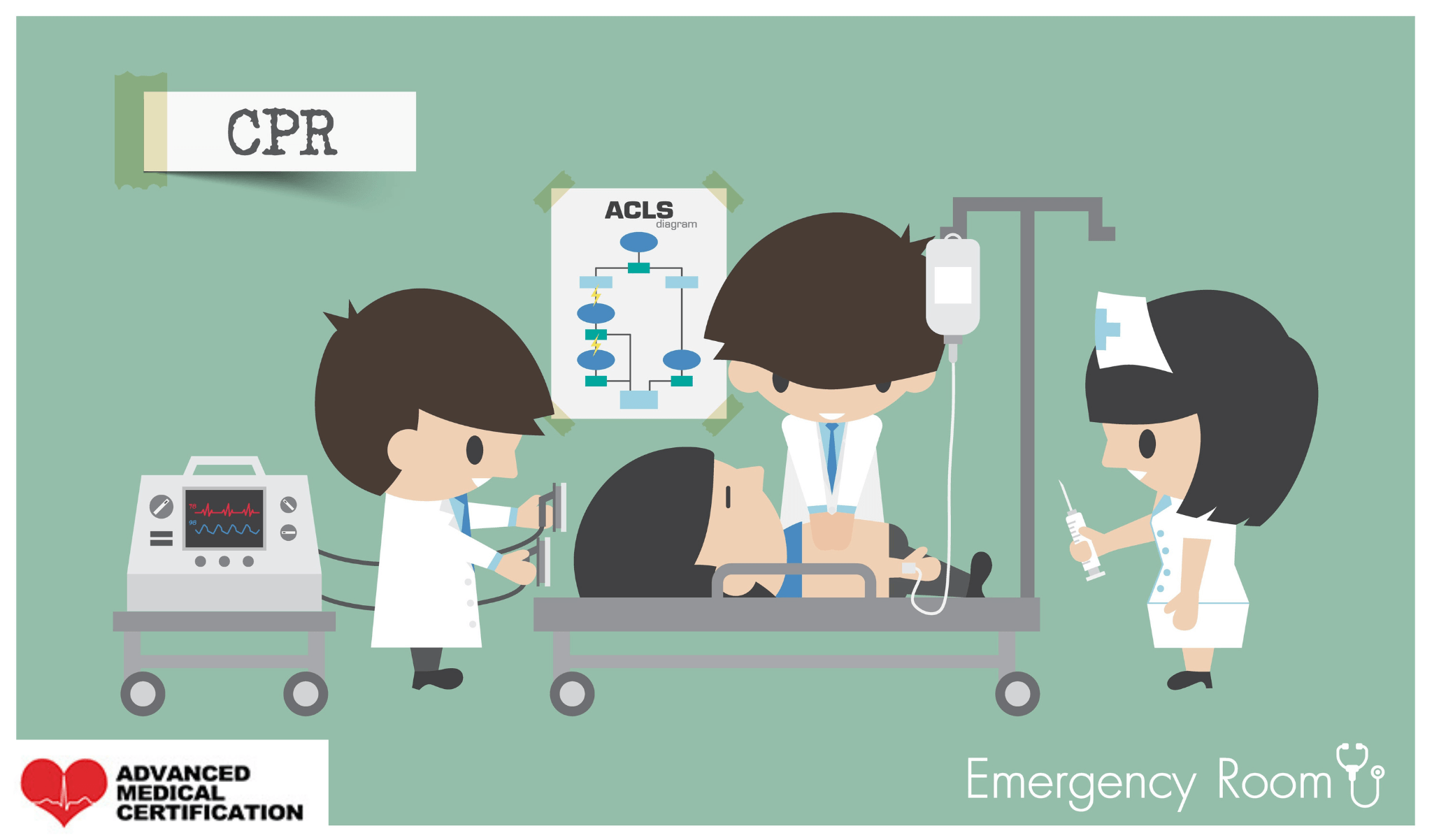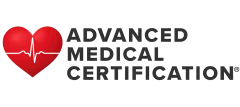How Many CEs is ACLS?
If you’re renewing your ACLS certification, you’re proving a willingness to be ready in what could be a patient’s most important moment. CEUs and CME credits earned through ACLS renewal keep your license active, satisfy employer requirements, and show your commitment to professional excellence.
Quick answer: Most ACLS recertification courses offer 4 CEUs, while full certification can earn up to 8 CEUs. The exact amount depends on your provider, accrediting body, and state licensing board.
How Many CE Credits is an ACLS Certification Worth?
ACLS (Advanced Cardiac Life Support) is a vital skillset for those who respond to cardiovascular emergencies. Any nurse in a critical care unit or physician in the ER knows that maintaining ACLS certification means staying prepared to deliver life‐saving care.
ACLS certification is commonly required for: 
- Nurses in ICUs, ERs, and cardiac care units
- Physicians and advanced practice clinicians
- EMTs and paramedics
- Any healthcare professional working in emergency or high‐risk environments
For these professionals, CEUs earned through ACLS often count toward both licensure renewal and job compliance, especially when completed through an accredited provider. Initial ACLS certification generally provides up to eight CEUs, while renewal courses typically award four. At AMC, both certification and recertification options are fully accredited and eligible for up to eight AMA Category 1 Credits™.
What Changed in ACLS CEU Requirements (2021 vs. 2025)?
Since 2021, many healthcare employers and state licensing boards have tightened CE requirements. More now require:
- Proof of accreditation through a nationally recognized provider (e.g., Postgraduate Institute for Medicine)
- Courses that align with the latest ILCOR guidelines
- Documentation showing exact CE hours earned
The good news is that AMC’s courses meet all current standards and are designed to maximize CE value in the shortest time possible. In fact, most learners complete the course in under an hour.
How ACLS Compares to CEUs for Related Certification Courses
If you’re trying to decide which certifications will best support your continuing education goals, it helps to understand how ACLS stacks up against other common courses like BLS certification and PALS.
ACLS (Advanced Cardiac Life Support)
ACLS focuses on adult cardiac emergencies and covers advanced interventions like ECG interpretation, airway management, and pharmacology.
- Initial certification: Up to 8 CEUs
- Recertification: Typically 4 CEUs>
PALS (Pediatric Advanced Life Support)
PALS builds on ACLS by adapting those same critical interventions for pediatric patients. Because the course requires specialized knowledge in pediatric physiology and emergency response, it often carries comparable or even higher CE value, especially for nurses and clinicians in pediatric or NICU settings.
- Initial certification: Up to 8 CEUs
- Recertification: Typically 4 CEUs
BLS (Basic Life Support)
BLS covers the foundational skills of CPR, AED use, and basic airway management for all patient populations. While essential, it’s considered entry‐level training. As a result, CE credit for BLS is usually lower.
- Initial certification: Often 1–3 CEUs
- Recertification: Typically <1–2 CEUs
Why ACLS Usually Carries Higher Credit Than BLS
ACLS certification requires a deeper understanding of cardiovascular systems, emergency team dynamics, and clinical pharmacology. It also includes hands‐on application of advanced skills, all of which justify its higher CE credit value. However, for pediatric specialists, PALS may be the preferred course and is sometimes weighted more heavily depending on your role and licensure board.
How to Earn and Submit ACLS CEs Successfully
The first step to earning CE credits for ACLS is choosing an accredited provider. Accreditation ensures the course meets national standards, follows the latest ILCOR guidelines, and will be accepted by most state licensing boards and employers. AMC’s ACLS certification courses are fully accredited through the Postgraduate Institute for Medicine (PIM and approved for up to 8 AMA Category 1 credits, making them widely accepted for continuing education credit.
Once you complete your course, you’ll obtain documentation confirming your CE credit (usually in the form of a digital certificate or provider card). You should then register your certificate with your state licensing board or employer as instructed, often via an online portal or continuing education tracking system to ensure your credits count toward license renewal.
Common Mistakes & Misconceptions About ACLS CE Credits
To avoid delays in license renewal or gaps in certification, steer clear of these common mistakes.
- Confusing CE, CEU, and CME Credits
CE, or continuing education, is the broad term for professional learning activities. CEUs, or continuing education units, technically represent 10 contact hours but are often used in healthcare to mean CE hours. CME, or continuing medical education, is specific to physicians and is typically awarded as AMA Category 1 Credits™.
- Not Checking State-Specific CEU Requirements
CEU acceptance can vary depending on your state licensing board, employer policies, and even your specific professional role. For example, some states accept ACLS CEUs for nurses only if the course is approved by the ANCC, while others limit how many online CE hours count toward renewal. Verifying these requirements before starting your course helps avoid compliance issues and renewal delays.
- Forgetting to Renew ACLS Before It Expires
Allowing your ACLS certification to lapse means you may become ineligible to work in certain clinical settings, as some employers require proof of current ACLS to maintain hospital privileges. If your certification does expire, you’ll typically need to retake the full eight‐hour course rather than the shorter renewal.
Proper Certification
ACLS certification is a requirement in many clinical roles, particularly in emergency departments, ICUs, and other high‐risk care environments. Earning CE credits through an accredited ACLS course ensures that your certification is valid, up to date, and aligned with the latest industry standards.
Compliance
Most healthcare professionals are required to complete a certain number of CE hours as part of their license renewal. Failing to meet these requirements can cause delays, additional fees, or even temporary suspension of your licensure. CEUs earned through a reputable provider like AMC count toward these requirements and help demonstrate to state boards and employers that you’re staying compliant with current regulations.
Professional Growth
Beyond meeting requirements, continuing education helps you grow as a clinician. ACLS coursework reinforces essential knowledge while introducing updated protocols, decision‐making frameworks, and team communication strategies, all of which strengthen your clinical judgment.
How to Stay Ahead on ACLS Requirements
AMC’s 100% online ACLS certification courses are accredited, flexible, and designed for busy healthcare professionals. In under an hour, you can refresh your skills and obtain up to 8 AMA Category 1 Credits, so you can continue to provide excellent clinical care, one patient at a time.
Ready to take the next step? Visit AMC to explore ACLS CEU details, accreditation information, and course options designed to fit your schedule.

